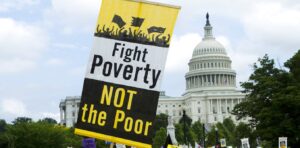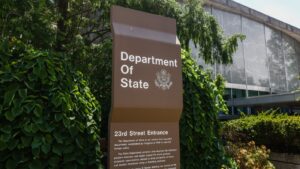Glastonbury Controversy: A Reflection on Modern-Day Anti-Semitism
In a surprising twist at a well-known festival, a chant at Glastonbury has sparked a debate on the rise of anti-Semitic sentiment. Echoing the past, reminiscent of a controversial moment from Da Ali G Show, the chant “death, death to the IDF” reverberated among attendees, raising questions about the underlying motives and implications.
Bob Vylan, a punk-rap duo, performed at Glastonbury, captivating a primarily white middle-class audience with their provocative lyrics. The chant, aimed at the Israeli Defense Forces (IDF), has been criticized for implying a broader anti-Semitic message. In Israel, military service is mandatory for many, seen as a means of protection for a nation established post-Holocaust as a refuge for Jews.
With chants suggesting animosity towards the IDF, concerns arise about the increasing anti-Semitism in the UK, especially considering the history of the Holocaust. This incident reflects a troubling trend of reviving harmful stereotypes and allegations, such as the ancient blood libel accusing Jews of malevolent acts.
Critics argue that the focus on Israel and Jews overshadow other global tragedies. Despite significant humanitarian crises in places like Sudan, where conflict has led to massive casualties and displacement, events like Glastonbury remain silent on such issues, highlighting a perceived bias.
The festival’s audience faced further scrutiny for displaying symbols associated with groups involved in violent acts, including the attack on the Nova music festival in 2023, where hundreds were killed or taken hostage. The juxtaposition of celebrating a festival while implicitly supporting these groups has raised alarms.
Hannah Arendt’s concept of the “banality of evil” feels particularly relevant, as ordinary festival-goers engage in behavior with potentially harmful implications. This contrast between perceived civility and underlying prejudice underscores the subtlety and danger of such actions.
The festival’s contradictions extend beyond chants; slogans like “build bridges, not walls” seem ironic when considering the secure barriers around Glastonbury itself. This inconsistency emphasizes the dissonance between ideals and actions among attendees.
Online platforms have amplified the discussion, as public figures like Rod Stewart face backlash for moderate views. Meanwhile, bands like Kneecap stir controversy with provocative statements, blending music with political and religious tensions.
While free speech is often defended, the line between expression and incitement is blurred. Supporters of contentious acts and rhetoric argue for their validity, yet the potential for inciting violence remains a critical concern.
As Britain navigates these complex issues, the Glastonbury incident serves as a stark reminder of the deep-seated challenges facing modern society. Solutions may lie in addressing the root causes of prejudice and fostering genuine dialogue.
The words of Paul to the Ephesians resonate amid the discord: “For he himself is our peace, who has made the two groups one and has destroyed the barrier, the dividing wall of hostility” (Ephesians 2:14). In a world building metaphorical walls, finding peace remains a crucial goal.
This article was originally written by www.christiantoday.com





